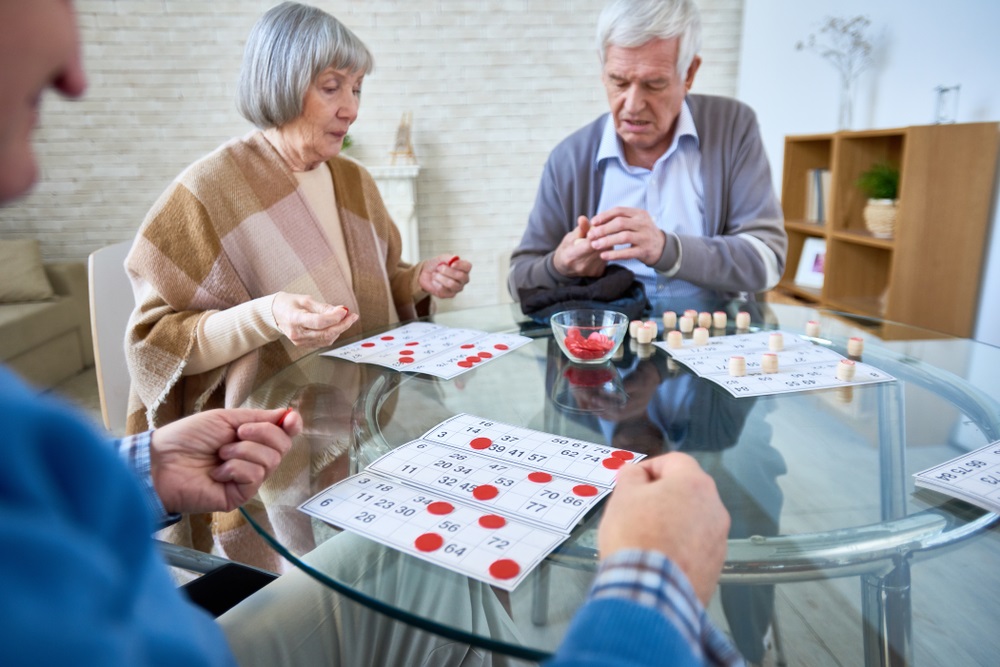How Can I Help My Loved One Who Is Struggling Living Alone But Won’t Admit It?

We’ve just come off from that time of year for holiday music, traffic, and annual pilgrimages to see parents, aunts, and uncles who live far away. The holidays are a good time to check on our loved ones and assess what assistance they might need to safely age in their homes. However, it is important to show respect for your elder’s independence, or your offers of help may be rebuffed.
Prepare a mental checklist of things to look out for and to discuss with your loved one. It might include questions such as:
- Does an elderly loved one require help with housekeeping, dressing, bathing, shopping and meal preparation, or medications?
- Are they isolated or lonely? How often do they socialize with others?
- If living with another, are they dependent on that person for care?
- Is that person an appropriate caregiver?
- Does the caregiver understand the elder’s medical conditions?
Make the most of your visits by taking some private time with the elder to discuss future planning. Sometimes seniors need help but are afraid that their children or other relatives will force them out of their home if they share any concerns or difficulties. Reassuring your loved ones that you want to help them live the life they want can help. Your support and guidance can help prevent serious accidents and future health complications, allowing seniors to remain in their homes longer.
Other times, however, seniors do not recognize their decline or limitations. During your visit, keep an eye out for warning signs of self-neglect or of exploitation by others. Possible signs of self-neglect or danger may include the following:
- The individual appears confused or disengaged.
- They are no longer able to handle meal preparation, bathing, bill paying, etc.
- The refrigerator is empty, or the kitchen has not been used recently.
- The older adult is drinking too much or is abusing drugs.
- There are substantial changes in the appearance of the home- cluttered or dirty.
- The senior is falling frequently.
- The car is scratched or dented, or you observe the senior driving unsafely.
- Your loved one appears undernourished, dehydrated, or under-medicated, or is not getting care for problems with eyesight, hearing, dental issues, incontinence, etc.
As seniors are living longer, more are living alone. This increases their risk of abuse and neglect. Perpetrators look for opportunities when their victims are most vulnerable. The death or incapacity of a spouse, health challenges, diminished capacity, and social isolation all increase susceptibility to fraud and exploitation.
Since the pandemic, the incidence of elder exploitation has skyrocketed. Over the last few years, many seniors have turned to technology as a social outlet. Individuals who knew to limit phone interactions with potential scammers may find themselves willing to engage in social media interactions just to have some personal contact. In addition, seniors are shopping and banking online more, but may not have the technological savvy to protect themselves. In addition, criminals are quite adept at mining obituaries and social media for information they use to target their victims.
Families can improve these factors by remaining as connected as possible with their loved ones. You can also educate yourself about the latest scams and share that information with older family members. Research has shown that individuals who have heard about a scam are substantially less likely to fall victim to it.
Elder exploitation commonly occurs in early cognitive decline, so if your loved one is showing evidence of memory loss or other cognitive impairment, look for these signs of elder abuse and exploitation:
- A new or quickly intensified relationship with a family member, friend, or caregiver;
- Increased dependence on that individual to handle tasks they previously handled independently;
- New suspiciousness or paranoia about a close loved one the senior always trusted in the past;
- Increased voluntary isolation from family (i.e., change in communication level or patterns);
- Unwarranted repairs or renovations or mention of a “helpful” neighbor who will handle repairs;
- Family pet seems neglected or abused;
- An abundance of online shopping packages, mail, and/or phone solicitations for money;
- Sudden or unexplained changes in spending habits, accounts, or financial institutions;
- Unexplained checks, transfers, or credit card use;
- Missing checks, statements, or other financial records;
- A lack of knowledge about their own finances or an inability or unwillingness to explain the changes above.
Discuss any concerns with your loved one openly and honestly. Ask your elderly loved ones directly if they are afraid of anyone, if anyone is taking things without their permission, if anyone is asking them to do things they are uncomfortable with, or if anyone is humiliating them. However, tactics that come across as confrontational can backfire, as the perpetrator often primes the victim to be suspicious of family members and fosters paranoia that their family wants to control, abuse, or institutionalize them. Professional help may be needed to determine the best way to help a senior without further alienating them.
If you believe your loved one needs help, try to enlist other family members to offer support. If your loved one appears to be in danger and won’t accept help, you can call your local Adult Protective Services or Division/Office on Aging. If the person lives in a licensed facility, call the local Long-Term Care Ombudsman. You can also introduce yourself to responsible neighbors and friends. Give them your address and phone numbers in case of an emergency.
It can be difficult to know when to intercede, but taking time during visits to observe, listen, and understand what your loved ones are experiencing is the first step. Our team can provide additional resources and facilitate a family meeting to discuss ways to help without infringing on your loved one’s independence. Feel free to reach out to me at ssiegel@norris-law.com.




